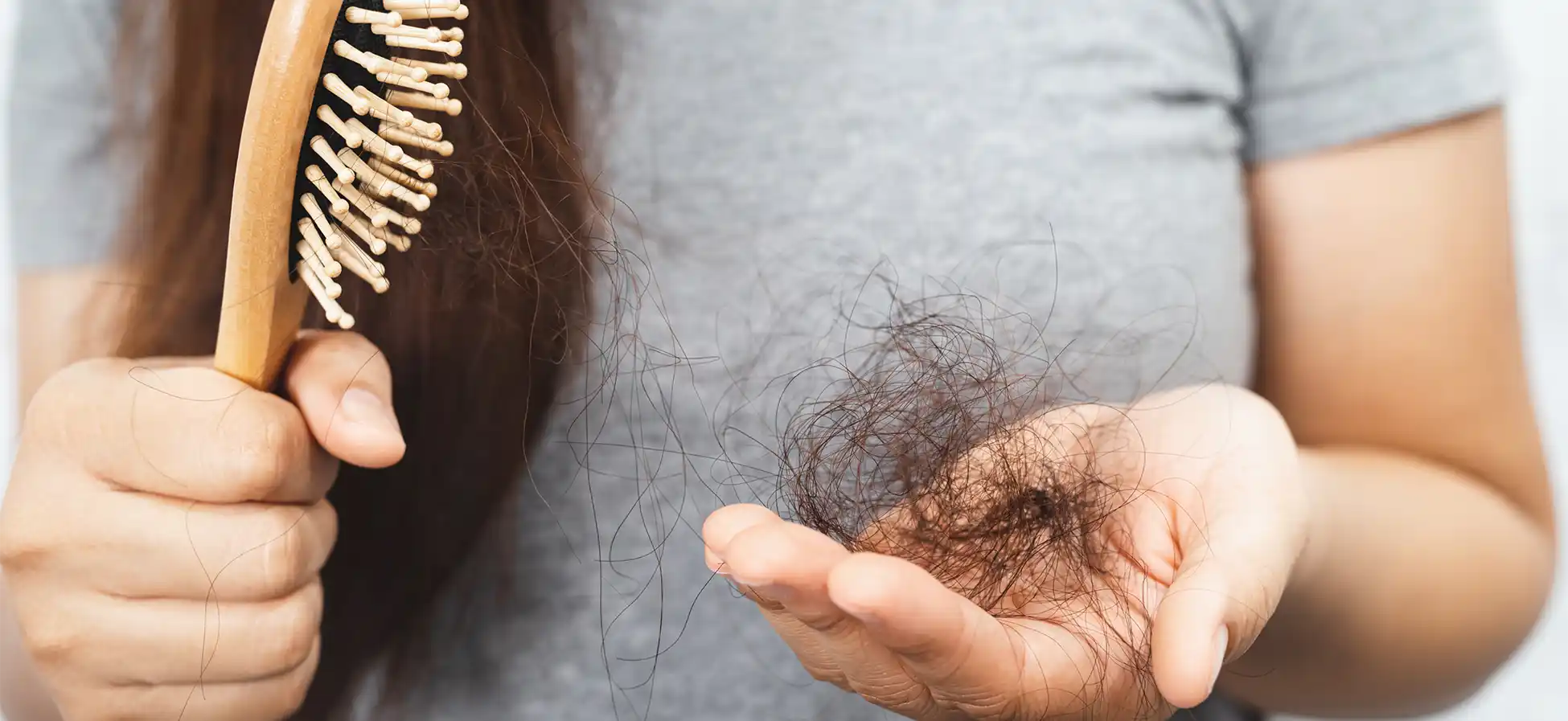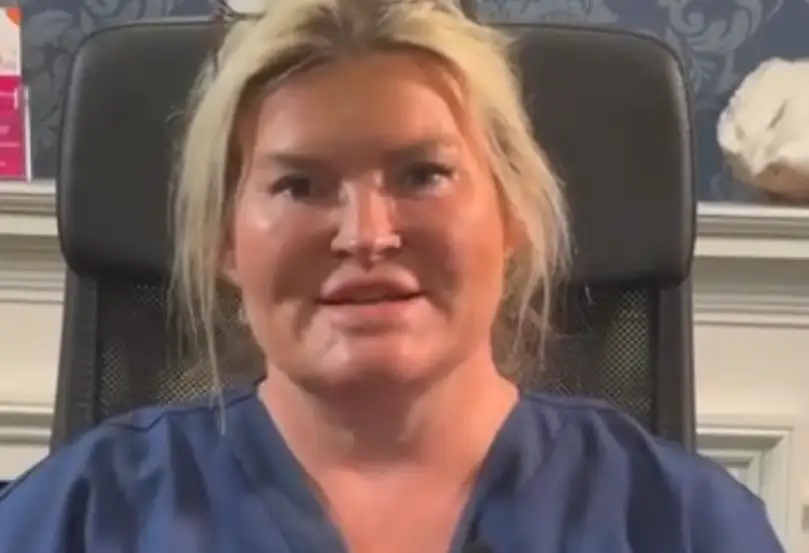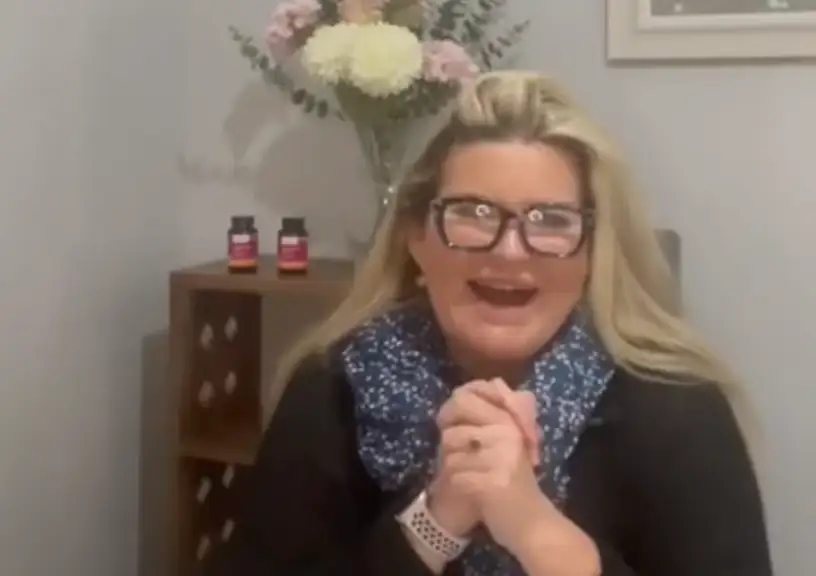Hair loss and menopause – can it cause hair loss?
The change of life from youth to maturity is a natural phase every woman has to go through. And one of the most common and noticeable effects of menopause is hair loss. Women tend to experience more hair loss than normal due to the hormonal imbalance caused by menopause. This often leads to concern about whether hair loss is a serious problem or not.
This article will discuss the effects of menopause on hair loss, and how it can be managed to lessen the impact it has on a woman’s life. It is important to understand the science behind why it happens and what can be done to control it. We will discuss the scientific evidence and provide advice on how to reduce the amount of hair loss associated with menopause. We will also look at the ways to maintain healthy hair throughout the menopausal transition.
Understanding the Connection between Menopause and Hair Loss
Menopause is associated with several physical and psychological changes, including hair loss. It is important to understand the underlying connection between menopause and hair loss in order to manage the condition in a timely manner. Hormonal shifts during the transition are one of the primary causes of this hormonal change. Oestrogen levels drop, leading to an increased production of the hormone dihydrotestosterone, which can cause hair thinning and loss. Other causes of hair loss during menopause include chronic stress, poor nutrition, and changes in the scalp environment due to aging.
How Hormonal Changes Affect Hair Loss
Subsequent to the examination of the connection between menopause and hair loss, it is essential to understand how hormonal changes affect this condition. During menopause, the body experiences a dramatic decline in oestrogen and testosterone levels, which can cause a wide range of changes in the body, including thinning hair. This is due to the fact that hormones can affect the production of hair follicles, which can lead to hair loss.
Moreover, the hormonal fluctuations associated with menopause can also cause the hair follicles to become thinner and shorter, resulting in a decrease in the overall volume of hair. This is due to the fact that the hormones can interfere with the normal metabolism of the hair follicles, leading to a decrease in the amount of hair produced. Additionally, the decrease in oestrogen levels can also lead to an increase in the production of androgens, which can also contribute to hair loss.
In conclusion, it is clear that hormonal changes associated with menopause can have a significant impact on hair loss.
Causes of Hair Loss During Menopause
The effects of menopause on a woman’s body can be far-reaching, and the same can be said of its effects on her hair. A common cause of hair loss during menopause is changing hormonal levels, specifically the decrease in oestrogen. Let’s take a look at how these hormonal changes can lead to hair loss.
As oestrogen levels shift during menopause, the body begins producing more androgens, which are hormones that have a powerful effect on hair growth. An increase in androgens can cause the follicles on the scalp to shrink, resulting in hair thinning or even bald patches. Additionally, an increase in androgens can result in more facial hair, as well as increased shedding on the scalp.
Another cause of hair loss during menopause is hereditary. If a woman has a family history of hair loss at a certain age, she is more likely to experience it herself.

Different Types of Hair Loss in Menopausal Women
As we move into understanding the different types of hair loss that can affect menopausal women, it is important to understand the various types of hair loss patterns that can occur during menopause. Androgenetic alopecia, or female pattern hair loss, is the most common type of hair loss in menopausal women. This type of hair loss is caused by a combination of hormonal changes and genetics. It is characterized by thinning throughout the scalp, but can also cause bald spots.
Other types of hair loss that can occur during menopause include telogen effluvium, which is a type of hair loss caused by sudden changes in hormone levels. It is characterized by a diffuse thinning of the hair and can be caused by anything from physical or emotional stress to major surgery or even childbirth.
Finally, alopecia areata, which is an autoimmune disorder, can also occur during menopause.
Treatments for Hair Loss
Hair loss is a common problem that can be caused by various factors. Fortunately, there are a variety of treatments available to help restore hair growth. From medications to laser hair therapy and Platelet-Rich Plasma (PRP) therapy, these treatments can help people of all ages address their hair loss issues.
For those experiencing hair loss due to aging, medications like minoxidil and finasteride can help reduce the effects of hair loss. Additionally, hair transplants can restore natural hair growth in the affected areas.
Aging and Hair Loss Treatments
With the approach of aging, hair loss can become an increasingly common problem. While it is not always caused by aging, the unfortunate truth is that it can often be a result of getting older. To combat this, there are a variety of treatments that can help keep hair looking full and healthy.
One of the most popular aging and hair loss treatments is medication. This treatment can help slow down the rate of hair loss and even promote new hair growth. Common medications include minoxidil and finasteride, which can be taken orally or applied topically. It is important to note, however, that these medications may have side effects and should be discussed with a doctor before use.
In addition to medication, there are treatments specifically for hair loss caused by hormonal changes. These treatments can help to balance hormones and stop hair from falling out. Such treatments include hormone replacement therapy and oral contraceptives.
Medications for Hair Loss
Now that it’s clear there is a connection between menopause and hair loss, let’s explore the various treatments available. One of the most common treatments for hair loss is medication. Minoxidil is a topical solution used to treat hair loss and stimulate hair growth in men and women. When applied to the scalp, it works to widen blood vessels and increase the supply of blood and nutrients to the follicles. Finasteride is a pill that is taken by mouth and is designed to reduce the production of a hormone that causes male and female pattern baldness. This hormone, called dihydrotestosterone (DHT), is produced by the body and is responsible for hair loss. In addition to minoxidil and finasteride, there are a variety of other medications that are used to treat hair loss, including topical steroid solutions and topical immunotherapy.
Treatments for Hair Loss Caused by Hormonal Changes
From the physical to the emotional, hair loss due to menopause can be a difficult, and sometimes painful, experience. Fortunately, there are treatments that can help. Treatments for hair loss caused by hormonal changes, in particular, can be highly effective and can even reverse the effects of baldness.
The first step in treating hair loss caused by hormonal changes is to balance hormones. A doctor can provide medication to help balance hormone levels. This may include hormone replacement therapy or the use of over-the-counter supplements.
In more advanced cases, surgical interventions may be needed. For example, a doctor may recommend a hair transplant or scalp reduction surgery. These procedures involve transferring hair follicles from other areas of the scalp to the balding area.
Another option for treating hair loss caused by hormone changes is laser hair therapy. This involves using low-level laser light to stimulate the hair follicles, resulting in increased hair growth.
Strategies for Preventing Hair Loss
The battle against hair loss requires a multi-pronged approach. Eating a healthy diet, managing stress levels, and exercising are just the beginning. In addition, treating hormonal imbalances and indulging in scalp massage can play a crucial role in preventing further hair loss.
Nutrition is key when it comes to maintaining healthy hair. Eating a diet rich in essential vitamins and minerals helps to nourish the roots, promoting a healthy scalp. Incorporating fresh fruits and vegetables, as well as lean proteins, into meals can ensure the body has the necessary nutrients to strengthen hair follicles.
Eating a Healthy Diet
Having explored treatments for hair loss, it is wise to consider preventive strategies to keep our tresses looking healthy. Eating a healthy diet is the foundation for strong, shiny hair. It is important to ensure that the diet is rich in vitamins, minerals, and proteins which are essential for healthy hair growth.
Proteins are the building blocks of hair and so it is essential to eat plenty of lean proteins such as poultry, seafood, nuts, and legumes. Vitamin C and zinc play an important role in keeping hair strong and so consuming fresh fruits and vegetables such as oranges, strawberries, and dark leafy greens will help maintain hair health. Iron is essential for hair growth and can be found in spinach, kale, and other dark leafy greens.
Including an omega-3 fatty acid supplement in the diet helps to keep the scalp hydrated and nourished, and it is recommended to consume foods such as salmon, mackerel, sardines, and other fatty fish.
Managing Stress Levels
Fortunately, there are proactive steps you can take to mitigate the effects of stress on your hair. Managing your stress levels is an integral part of preventing hair loss and promoting healthy hair growth. Taking time to de-stress and decompress each day can be an effective way to reduce stress and protect your hair. Incorporating calming activities such as yoga, meditation, deep breathing, and journaling into your daily routine can help alleviate stress while also providing a sense of peace and well-being. Additionally, it is important to take time to relax and unwind throughout the day. Taking a few moments to reconnect with yourself can make a big difference in reducing stress levels and sustaining healthy hair.
Managing Hormonal Levels Through Exercise
Taking a holistic approach to hair loss prevention is essential, which includes managing hormonal levels through exercise. Exercising regularly helps to regulate hormones which can, in turn, help prevent hair loss. It also helps boost circulation and stimulates the scalp, both of which are beneficial for healthy hair.
Cardio exercises, such as running, cycling, and swimming, are great for boosting circulation and can help relax the body. It is also important to add strength training into a regular exercise routine as it helps to promote healthy hormone levels. Strength training can include weightlifting, bodyweight exercises, and resistance bands.
It is also beneficial to include yoga and stretching into a regular exercise routine. Yoga helps to reduce stress, which is one of the leading causes of hair loss. It can also provide an overall sense of wellbeing, which can help to reduce the symptoms of hair loss. Stretching exercises are also beneficial for improving circulation and providing an overall sense of relaxation.
Conclusion
The effects of menopause on hair loss are complicated, and vary from person to person. Fortunately, there are treatments available to prevent or reduce hair loss, such as hormone replacement therapy, minoxidil, and dietary changes. Additionally, there are lifestyle changes that can help reduce the risk of hair loss during menopause, such as avoiding harsh chemical treatments, reducing stress, and maintaining a healthy diet. With proper care and attention, women can maintain healthy hair during and after menopause. Making wise decisions and taking proactive steps now can help to ensure a lifetime of healthy, beautiful hair.
If you have tried some of the above tips and ideas, but haven’t got the results you were hoping for, MenoBliss could help you. With 38 natural active ingredients to help improve hormonal balance, MenoBliss helps reduce aches and pains, hot flashes, mood swings, insomnia, brain fog, hair loss, and lack of desire.



